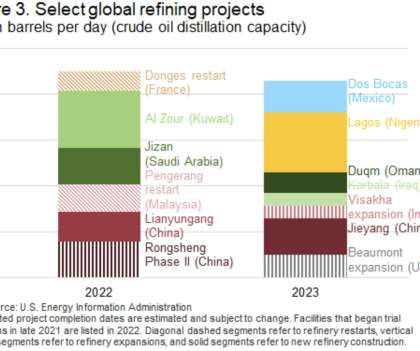EIA: New refineries will increase global refining capacity in 2022 and 2023; China leads
Green Car Congress
JULY 21, 2022
The International Energy Agency (IEA) estimates that global refining capacity decreased by 730,000 barrels per day (b/d) in 2021—the first decline in global refining capacity in 30 years. The refinery’s return is likely to decrease petroleum product prices and increase supply, particularly in south and southeast Asian markets.











Let's personalize your content